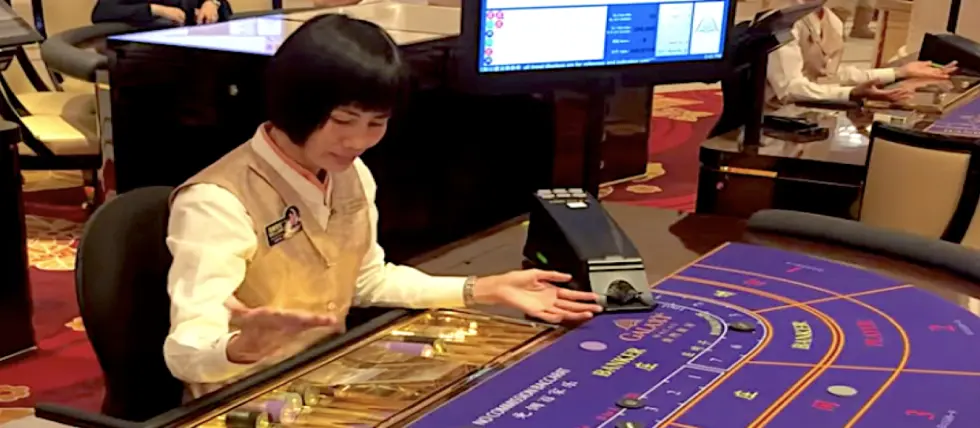Macau's Smart Casino Tables Not So Smart, According to Gaming Supervisors

Smart casino tables, touted as a technological advancement meant to streamline casino operations and enhance gaming experiences, have come under scrutiny in Macau. Nearly 1,000 gaming table supervisors have voiced their dissatisfaction with the increased workload these tables have brought, contrary to their intended purpose.
Related: Macau Casino Loses Over $207K through Chip ManipulationMacau lawmaker José Pereira Coutinho has highlighted these concerns in an inquiry he initiated about the gaming solutions. He revealed that the smart tables, rather than alleviating the burden on supervisors, have instead added to their challenges.
During peak hours, each gaming supervisor is required to manage six tables in the mass gaming areas. The expectation was that smart tables would simplify this task by automating various processes and reducing the need for constant supervision.
However, supervisors have reported that the reality is far from this ideal. Coutinho notes that malfunctions in these smart tables are common, necessitating additional staff to address and rectify issues, thereby negating any potential efficiencies.
According to the supervisors, the smart table system currently in use by gaming companies is not a fully developed version and is prone to frequent errors. These issues occur in "almost every game," requiring supervisors to spend considerable time investigating the root causes of these malfunctions. The frequent interruptions not only disrupt the gaming experience for players but also increase the operational strain on supervisors who must constantly troubleshoot and manage these technical problems.
More Business News
 Business
Business
PAGCOR Board Members Submit Courtesy Resignations Following Presidential Directive
May 30, 2025Smart Tables Not So Smart
Smart gaming tables, also known as radio frequency identification (RFID) tables, have been integrated into approximately 10% of all gaming tables in Macau as of the second quarter of 2024. These tables are equipped with RFID technology to track bets, manage chips, and streamline various gaming processes. However, the anticipated benefits of efficiency and reduced workload have not materialized as expected. Instead, the tables have added complexity and operational challenges to the gaming environment.
Supervisors have pointed out that the current implementation of the RFID system is incomplete and lacks the robustness needed to handle the dynamic and fast-paced environment of casino floors. The frequent technical issues and system errors demand continuous oversight and intervention from supervisors, who already face substantial workloads. The additional pressure from managing malfunctioning smart tables has led to widespread dissatisfaction among the supervisors, who feel that their work conditions have deteriorated rather than improved.
Coutinho advocates for a comprehensive review and upgrade of the technology to ensure that it fulfills its intended purpose of enhancing operational efficiency and easing the workload on staff. Until these issues are resolved, the smart tables remain a point of contention, representing a technological promise that has yet to be fully realized.
RELATED TOPICS: Business
Most Read
Must Read
 Interviews
Interviews
Sweepstakes Casinos: Thriving in an Ever-Changing Industry – Interview with Attorney Stephen C. Piepgrass
Feb 17, 2025 Interviews
Interviews






Review this New Post
Leave a Comment
User Comments
Comments for Macau's Smart Casino Tables Not So Smart, According to Gaming Supervisors